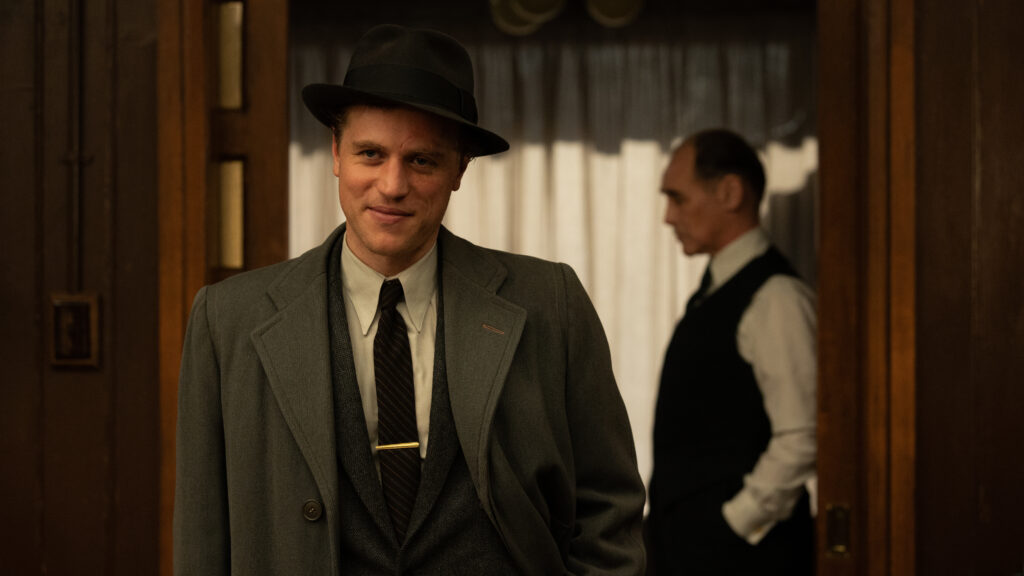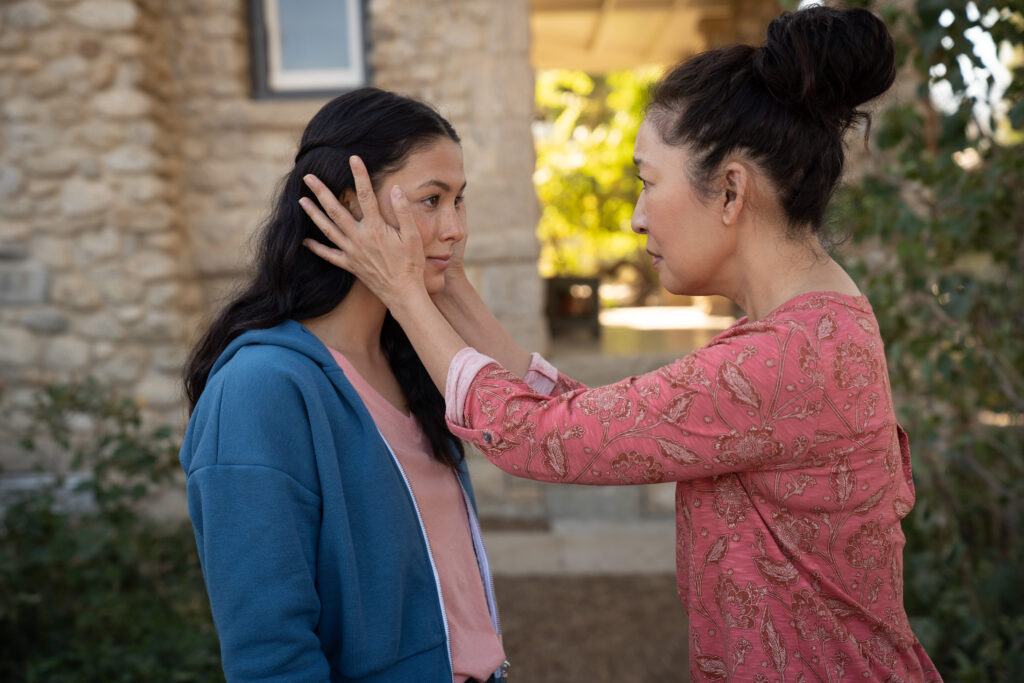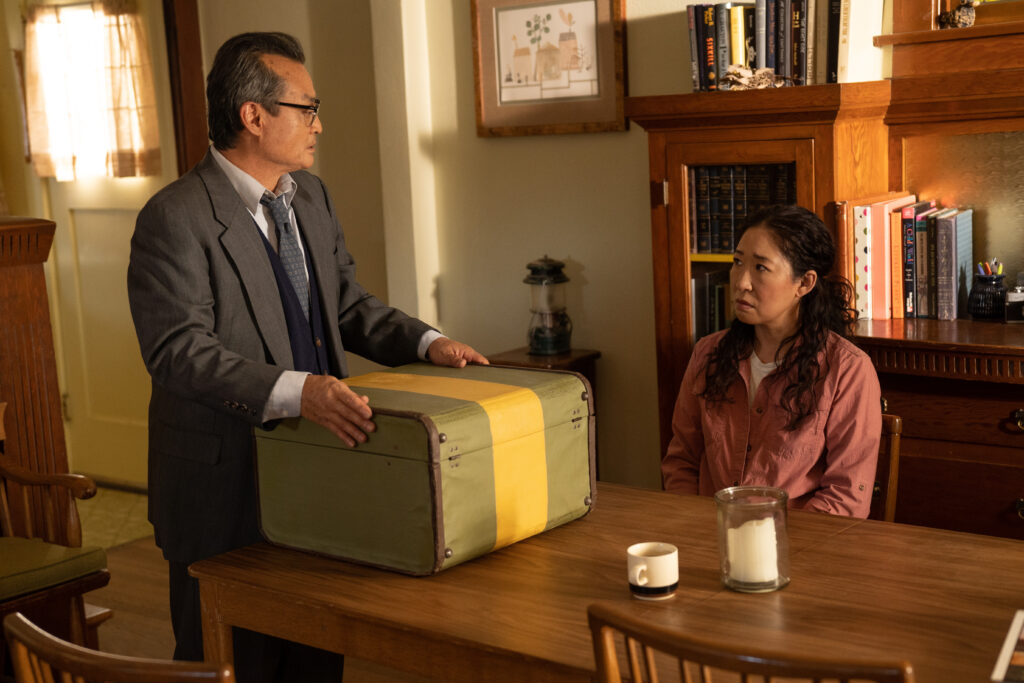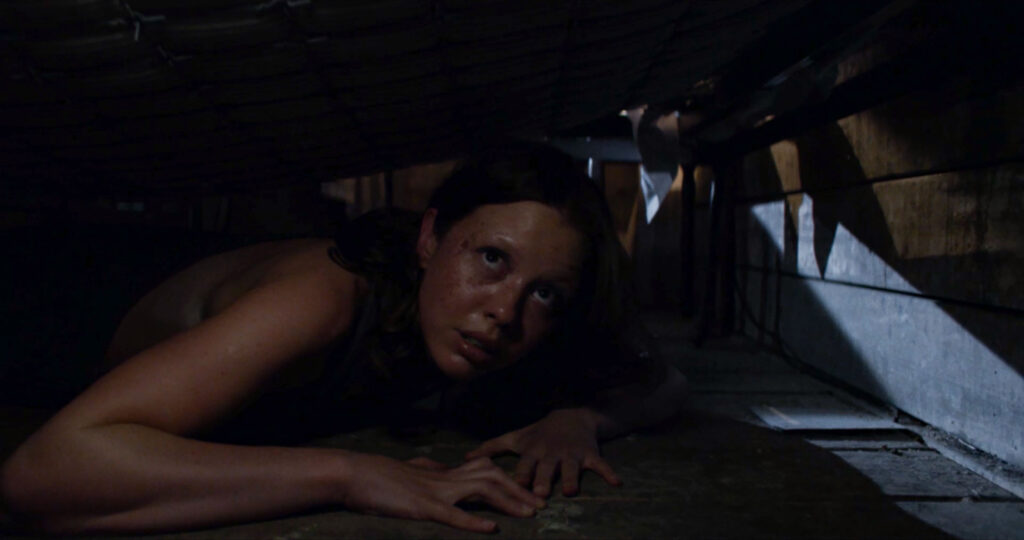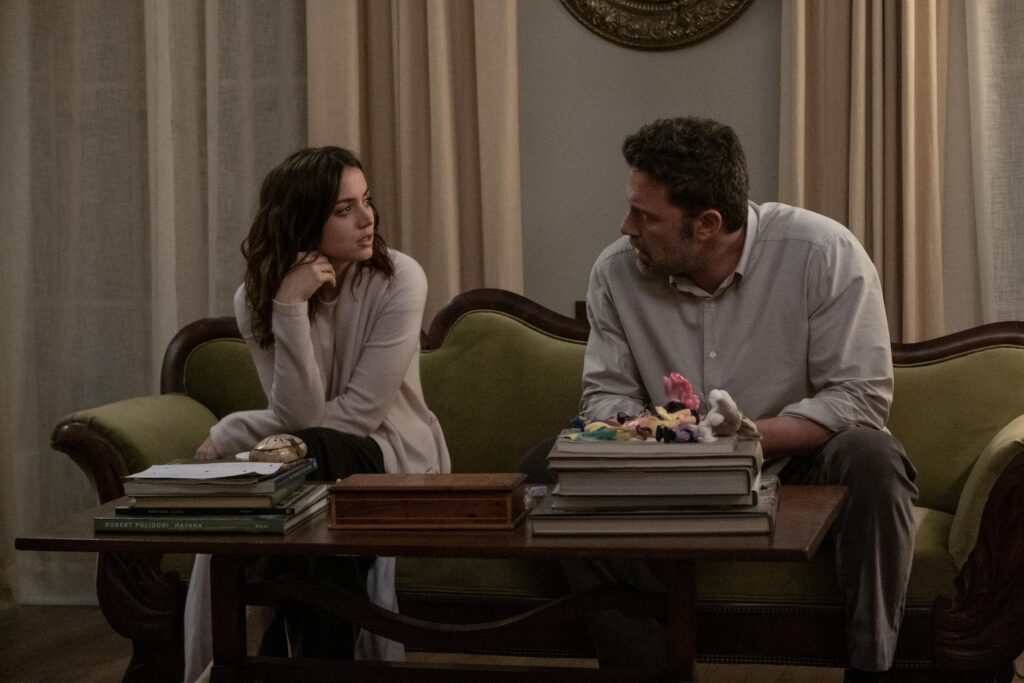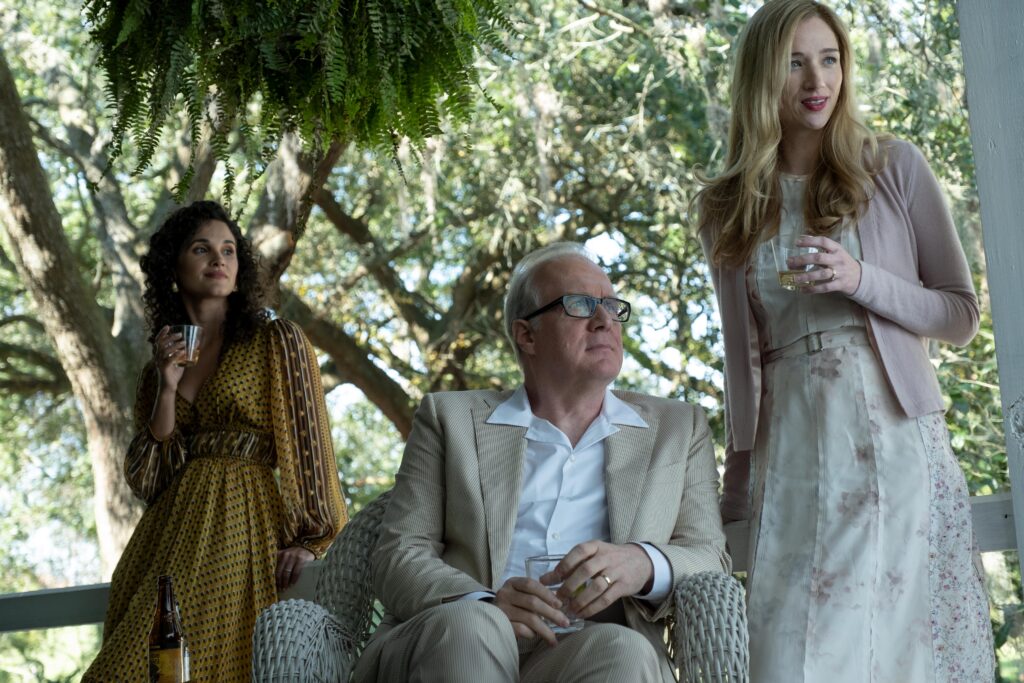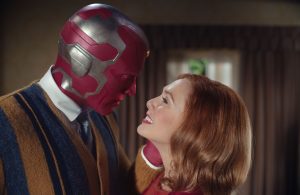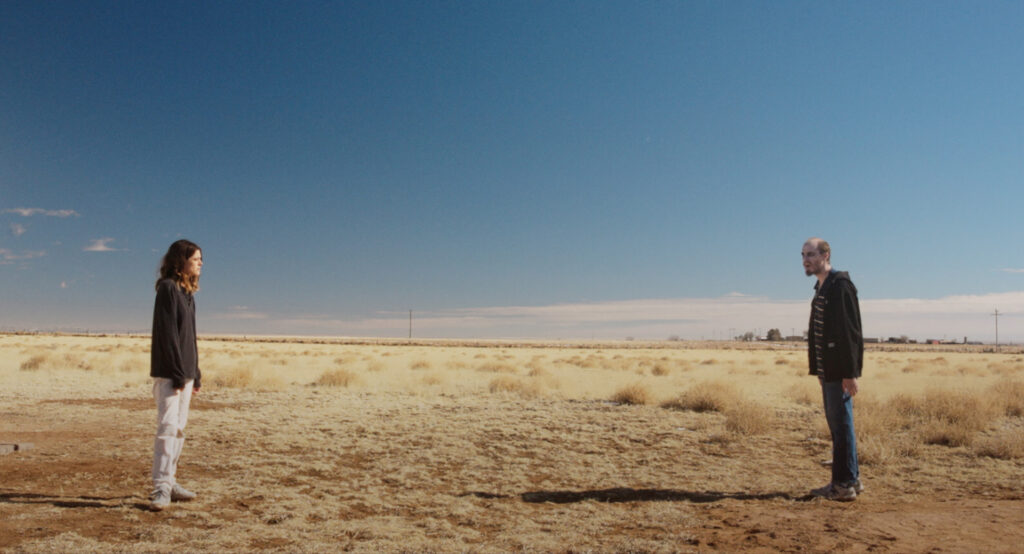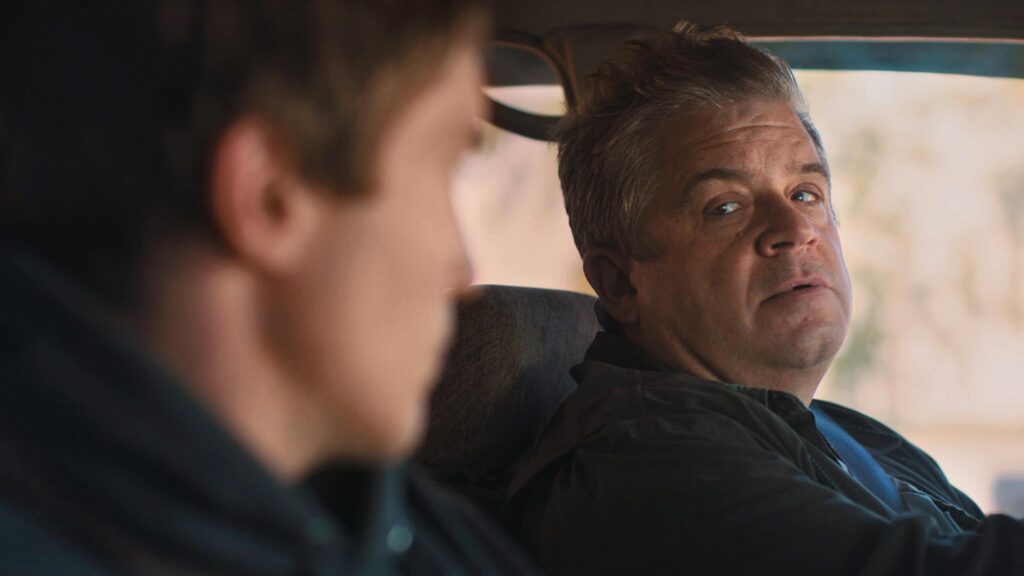March 20, 2022
by Carla Hay
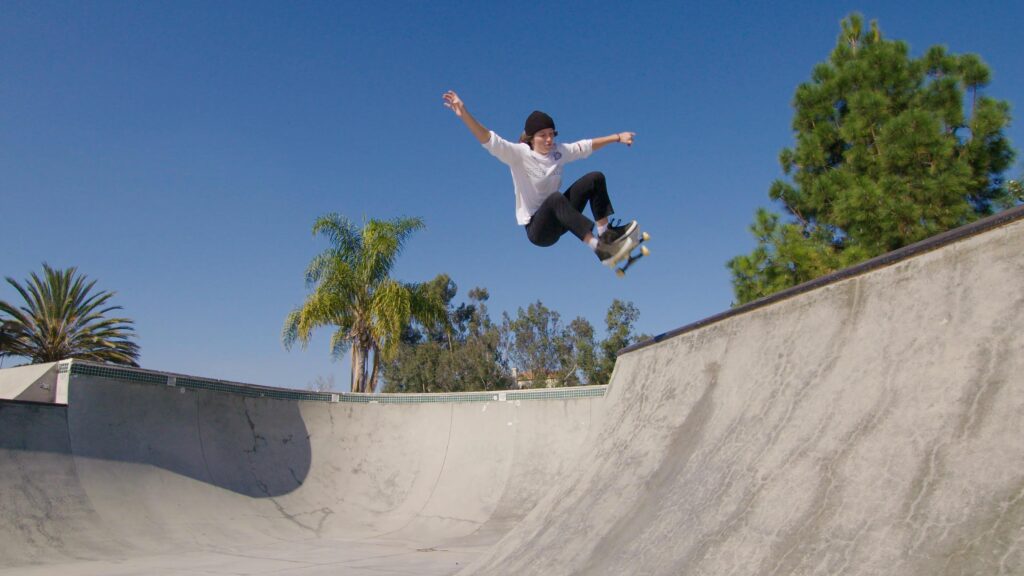
“Skate Dreams”
Directed by Jessica Edwards
Culture Representation: Taking place in various parts of the United States and in Phnom Penh, Cambodia, the documentary film “Skate Dreams” features a nearly all-white group of people (with a few Asians, Latinos and African Americans) representing the working-class and middle-class who are connected in some way to female skateboarding.
Culture Clash: Female skateboarders have a continual battle to get the same salaries, resources, media attention, job opportunities and respect as male skateboarders.
Culture Audience: “Skate Dreams” will appeal mainly to people who are interested in skateboarding and gender rights issues in sports.

“Skate Dreams” is a conventionally made but still inspirational and informative documentary about women and girls involved in skateboarding. Directed by Jessica Edwards, the movie strikes the right balance of telling personal stories with giving historical context and business details about the skateboarding industry. “Skate Dreams” might get some comparisons to director Amelia Brodka’s 2013 documentary “Underexposed: A Women’s Skateboarding Documentary,” which covered many of the same issues. “Skate Dreams” had its world premiere at the 2022 South by Southwest (SXSW) Film Festival.
“Skate Dreams” admirably puts a lot of the narrative over to female skateboarders, but the documentary could have used more perspectives from the male-dominated decision makers who still control the industry. That’s why “Skate Dreams” (which was filmed from 2019 to 2021) sometimes comes across an echo chamber. All of the complaints and concerns about sexism in skateboarding are absolutely valid and are rightfully in the documentary.
But after a while, when people who feel oppressed just complain about this oppression amongst themselves, not enough gets done to make progress in eradicating the oppression. At some point, there needs to be more of an open dialogue with the people who have the power to make changes in the skateboarding industry (and the people in those power positions are usually men), in order to bring gender equity in how skateboarders are treated in the industry. That open dialogue is largely missing in “Skate Dreams.”
The women skateboarders interviewed in the documentary include an impressive list of trailblazers, including celebrity skateboarder Nora Vasconcellos, Women’s Skateboarding Alliance founder Mimi Knoop, Action Sports Alliance founder Cara-Beth Burnside and Girls Skate Network founder/filmmaker/archivist Lisa Whitaker. However, “Skate Dreams” shut a lot of male influencers out of the conversation by not interviewing them. The only man who’s actually shown doing a sit-down interview for “Skate Dreams” is Drew Mearns, who passed away in 2021. Mearns was a teacher, sports coach, athlete manager/agent and an ESPN analyst, who was an ally to Action Sports Alliance.
“Underexposed: A Women’s Skateboarding Documentary” made some attempt to present more of a gender-balanced perspective about skateboarding. For example, the men interviewed in “Underexposed” included editors at Thrasher and Skateboarding magazines, the founder of Acme Skateboards and a Skate One marketing executive. However, “Underexposed” didn’t go far enough in asking them what they were going to do to help change the culture of misogyny and male sexism in skateboarding. The prevailing attitude of the men interviewed in the documentary was almost like a shrugging brushoff of admitting that sexism exists in skateboarding, but they also pretended as if they have nothing to do with enabling, condoning, or perpetuating this sexism.
A lot has changed since “Underexposed” was released. The #MeToo movement has brought more awareness and activism for issues related to sexism and sexual harassment. Skateboarding is now an Olympic sport. There’s more global enthusiasm/support for women and girls in skateboarding. And there’s even been a documentary that won an Oscar about the international influence of skateboarding: 2019’s “Learning to Skateboard in a Warzone (If You’re a Girl),” which won an Academy Award for Best Documentary Short Subject.
But some things haven’t changed. Champion female skateboarders still earn only a fraction of what their male counterparts earn. Female skateboarders are still rarely given prominent coverage in skateboarding media. Women are rarely the leaders at major skateboarding events. Some of the best parts of “Skate Dreams” are how it shows the history of female skateboarding, and when pioneers such as Knoop, Burnside and Whitaker tell their stories in the movie. This history is very important for people to understand how far female skateboarders have come, and to know more about the people who paved the way. (Knoop and Burnside were also interviewed in the “Underexposed” documentary.)
In 2005, Action Sports Alliance famously threatened a female skateboarder boycott of the X Games to demand three main things for female skateboarders: (1) an increase in the prize money so that it was on a more equitable level to the prize money given to male skateboarders; (2) increased exposure; and (3) women getting the ability to run female skateboard events. The threat of a boycott woke people up into making those changes. The people in the documentary acknowledge that more progress needs to be made.
Most professional skateboarders began skateboarding when they were children. Some of the more poignant aspects of the documentary are when the skateboarders talk about what inspired them and how the sport changed their lives. Knoop remembers taking up skateboarding at the age of 6, when her family lived in Guantanamo Bay, Cuba, because of her military father.
Knoop didn’t actually see women competing in skateboard events until she was a college student. She was so inspired by skateboard culture, she moved to California (the skateboarding mecca of the U.S.) and took up professional skateboarding at age 24. Burnside became a mentor to Knoop and many other female skateboarders, including Nicole Hause, who is prominently featured in “Skate Dreams,” which follows Hause’s journey as an Olympic hopeful. Knoop became a mentor to other female skateboarders too.
Burnside remembers her skateboarding origins and goals: “It was a long time ’til I started skating around other girls. I want to grow the sport. If only one girl is out there being good, it’s not going anywhere.” Even with Burnside’s successes in skateboarding, because of gender pay disparities in skateboarding, Burnside says she couldn’t make a living from the sport and turned to snowboarding to make money: “The reason why I went to snowboarding was because I did so much skating and I couldn’t get paid.”
Vasconcellos and Hause, who were roommates in the San Diego area at the time “Skate Dreams” was filmed, have a sisterly camaraderie that’s very entertaining to watch. Hause (who says her daredevil father was her earliest inspiration) praises Vasconcellos achievements for female skateboarders of their generation, by saying: “Nicole has paved the way for all of us.”
Adidas senior marketing manager Jessie Van Roechoudt comments on Vasconcellos becoming one the highest-paid female skateboarders in the industry and being a rare female skateboarder to have an endorsement deal with a major athletic shoe corporation: “It’s really significant for Nora to have this because it will move the needle in the industry versus how it used to be for us when we were just literally going to these contests to try to make our rent money.”
The documentary includes footage of Vasconcellos seeing her own custom-made athletic shoe brand during an Adidas business meeting, as well as interacting with fans during a meet-and-greet session. Vasconcellos, who began skating at age 5 or 6, describes how she feels about skateboarding: “The process is very addictive … You get high from learning a new a new trick … I love that people skate, and they’re true to themselves through skateboarding.”
Many of the women interviewed also talk about how skateboarders often grow up feeling like misfits and outsiders, but they can find a welcoming community in skateboarding, especially among other female skateboarders. This sense of community has inspired many female skateboarders to start their own skateboarding groups, where they mentor and inspire other skateboarders.
That’s certainly the case with “Tin” Kouv Chansangva, who lives in Phnom Penh, Cambodia, where she operates Skateistan, a non-profit group that uses skating and education to empower children. Chansangva says she grew up being abused by her father, but skateboarding helped boost her self-esteem: “I was afraid of everything … Skating made me feel confident. I forgot my fear.”
Chansangva explains that many of the kids in Skateistan don’t go to regular school because of poverty issues. Several of the children have to drop out of high school because they have to work to support their families. For many of these kids, Skateistan is the closest thing they have to getting an education with their peers. The documentary includes footage of Chansangva in Phonm Penh, as well as traveling to the U.S. for skateboarding meetups and events. She says, “I wish I could have a skater girl crew in Cambodia.”
The documentary has a very good variety of footage from women’s skateboarding events. They include the X Games 2019 in Minneapolis, Zumiez 2019 in Chicago, Wheels of Fortune 2019 in San Diego and USA Skateboarding Media Day in 2020. The overall sense that viewers get at the competition events is that women skateboarders are generally more supportive of each other than other sports where individuals compete against each other. There’s the desire to win, of course, but many female skateboarders seem to care more about surpassing their own personal goals than having the sport being about defeating and humiliating others.
American skateboarders are the main focus “Skate Dreams,” as is the case with “Underexposed.” Chansangva is the only skateboarder interviewed in “Skate Dreams” who is not from the United States. “Skate Dreams” could have had more exploration of diversity issues among female skateboarders.
The only women of color skateboarders interviewed are Chansangva, Jaime Reyes (who is Latina) and Jessyka Bailey (who is African American), who don’t really talk about racism issues in female skateboarding, maybe because the “Skate Dreams” filmmakers didn’t ask them. Bailey does say that she grew up in a predominantly white environment in Arizona, and she didn’t feel like she fit in anywhere until she moved to New York City. At the time she was interviewed for the documentary, Bailey was working at KCDC Skateshop in Brooklyn.
Other skateboarders interviewed in “Skate Dreams” include KCDC Skateshop owner Amy Gunther Ellington, Alex White, Jordyn Barratt and Alexis Sablone. It’s not really an oversight, but it’s a little surprising that “Skate Dreams” doesn’t mention HBO’s 2020-2021 dramedy series “Betty,” which was about of a diverse group of young, female skateboarding friends in New York City. It was certainly the first time that female skateboarding culture got its own primetime series on a major U.S. TV network.
“Skate Dreams” is more than a documentary about female empowerment. It speaks to many universal truths about overcoming obstacles, often in the face of a lot of adversity and skepticism. You don’t have to a skateboarding enthusiast to be inspired by the people in this movie.



